Bringing greenery indoors adds more than just aesthetic charm, it improves air quality, boosts mood, and fosters a calming space. However, if you’re considering window tinting for your home or office in Houston, you may wonder: Can window tinting affect your indoor plants?
Let’s clear the air, literally and figuratively. The short answer is: Yes, window tinting can impact your plants, but usually for the better, especially when you choose the right type of film.
As a trusted name in Houston since 2005, Commercial Film Specialists understands the balance between energy efficiency, comfort, and preserving what you love indoors, including your lush houseplants. Let’s dig into how window tinting plays a role in your indoor garden’s health.
How Window Tinting Works
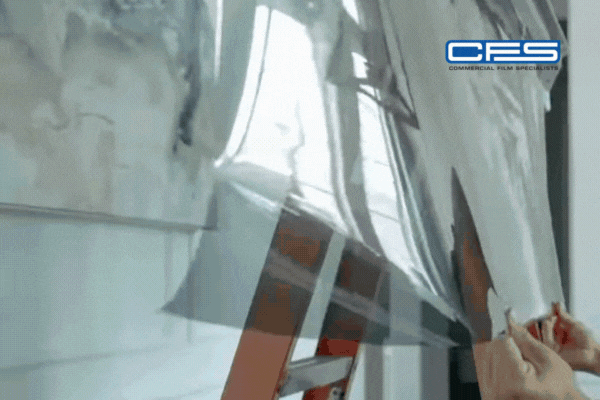
Window film is a thin, multi-layered material applied to glass that can block UV rays, reduce glare, and regulate heat. Modern films come in various types, including UV-blocking, Low-E (low emissivity), decorative, privacy, and heat-reducing.
These films don’t just darken your space, they’re engineered to control the light spectrum, letting in what’s helpful (like visible light) and keeping out what’s harmful (like ultraviolet rays and excessive infrared heat). This is particularly crucial in sun-soaked cities like Houston, where solar heat gain can overwhelm interior spaces, making it essential to consider effective cooling solutions.
For plant parents, that begs the question…
What Light Do Plants Really Need?
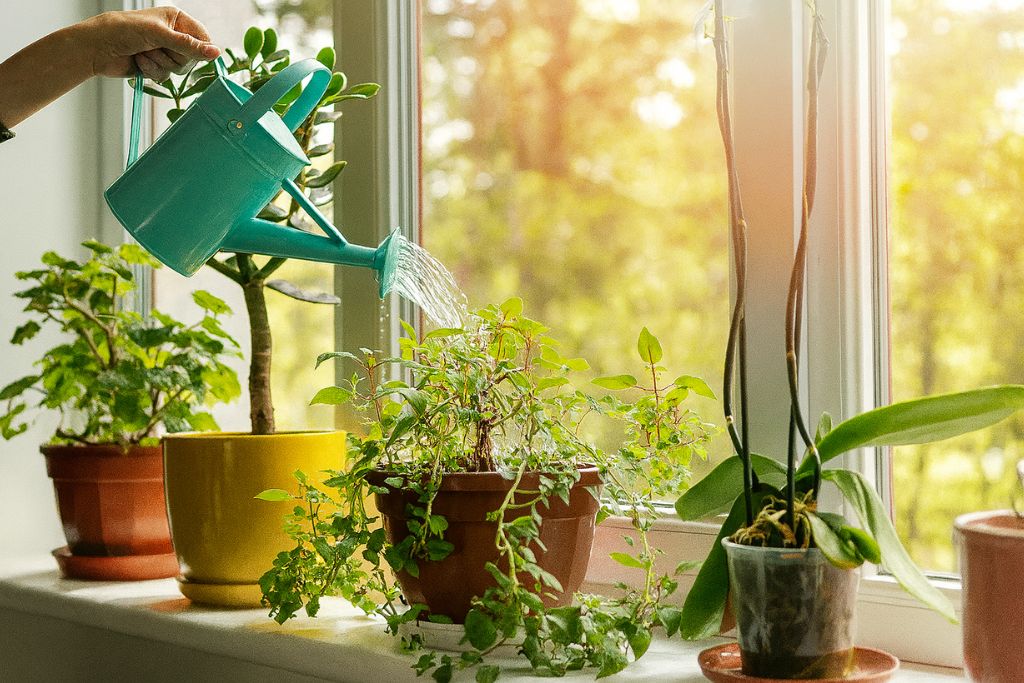
To grow and photosynthesize, plants rely on visible light, especially in the blue (400–500 nm) and red (600–700 nm) spectrum. These wavelengths drive key functions, blue light promotes leaf and stem development, while red light supports flowering and overall growth.
Contrary to popular belief, plants do not need UV light for photosynthesis. While small amounts of UV can influence pigmentation and plant defense mechanisms, excessive exposure damages plant cells, just as it can harm human skin or fade upholstery.
That’s why UV-blocking window films are beneficial to your indoor garden. They preserve the vital red and blue wavelengths while filtering out harmful UV radiation. This allows your plants to thrive in a healthier, more controlled environment, reducing the risk of leaf scorch, fading, or stress from excessive sun intensity.
Additionally, many modern window films offer high visible light transmission (VLT), ensuring your plants still receive ample light, even in shaded or south-facing windows.
Benefits of Window Tinting for Indoor Plants
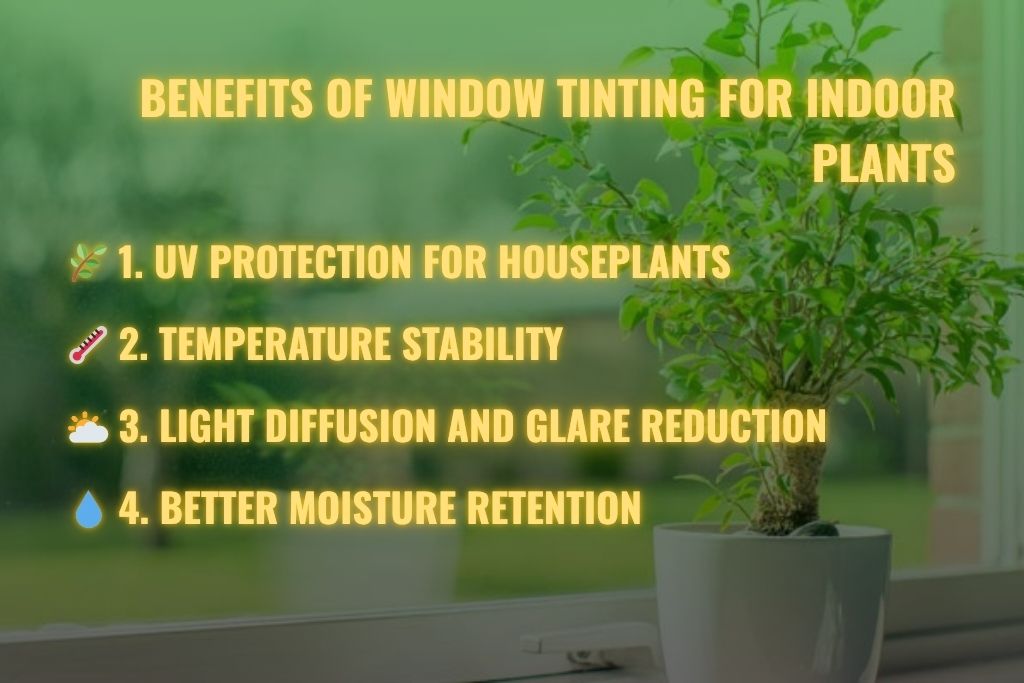
🌿 1. UV Protection for Houseplants
Tinted windows can block up to 99% of harmful UV rays. This protects delicate foliage from bleaching and cellular damage while preserving your furniture and flooring, a win-win for design and biology.
Learn more about how window tint protects your skin and furniture from harmful UV rays.
🌡️ 2. Temperature Stability
Especially during sweltering Houston summers, excessive heat can stress your plants. Window film helps regulate interior temperatures, providing a stable environment for your greenery to flourish.
🌥️ 3. Light Diffusion and Glare Reduction
Some films offer diffused light, which mimics shade-like conditions. This is ideal for plants like ferns, snake plants, and pothos, which thrive in low-light conditions without direct sunlight. Additionally, reduced glare means less light stress for sensitive species.
💧 4. Better Moisture Retention
By limiting overheating, window film helps reduce water evaporation from pots and soil, meaning less frequent watering and a lower risk of dehydration.
Do All Tints Work for Plants?
Not quite. The type of window film you choose can influence how well your indoor plants grow. Some films support healthy growth, while others may require adjustments to your setup.
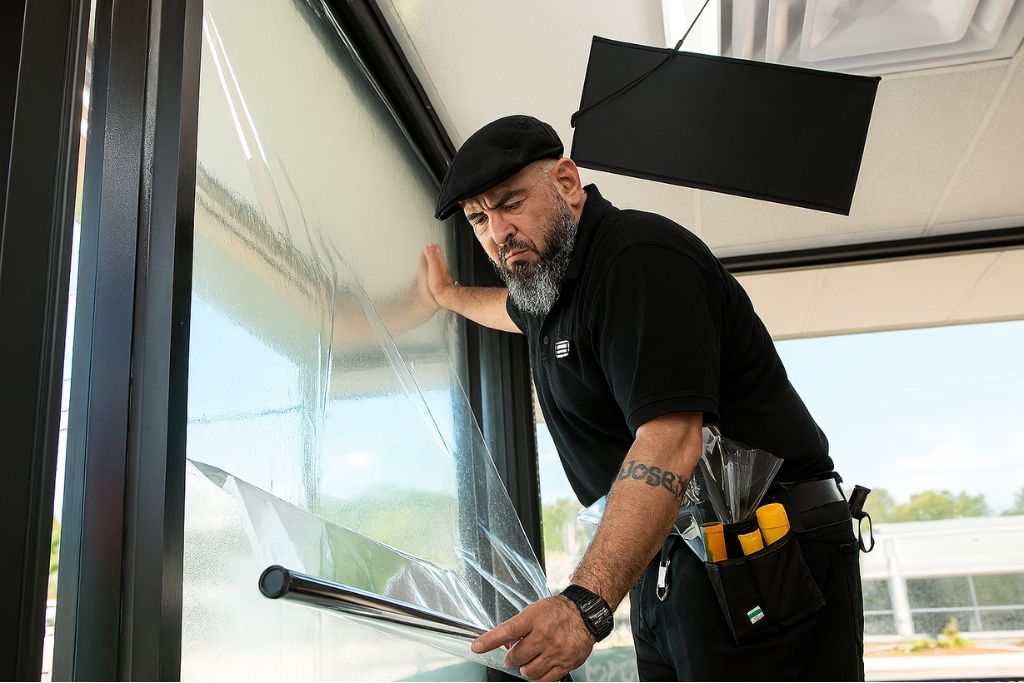
✅ Plant-Friendly Window Films
- Transparent UV-Blocking Films: Excellent for allowing high visible light transmission while blocking harmful UV rays. They maintain natural light levels and are ideal for most houseplants, including those with low to medium light requirements.
- Spectrally Selective Films: Designed to allow specific light wavelengths, especially red and blue light essential for photosynthesis, while rejecting heat and UV. These are great for balancing plant health and energy efficiency.
- High Light Transmission Films (≥70%): Best for rooms with light-loving plants like succulents, herbs, or orchids. These films allow ample daylight while softening the intensity to prevent leaf burn.
⚠️ Films to Use Cautiously
- Room-Darkening Tints: Provide privacy and glare reduction, but can drastically limit light, especially in north-facing rooms. High-light plants may struggle without supplemental lighting.
- Decorative or Frosted Films: Soften and diffuse light, creating a more shaded environment. Many plants can adapt, but it’s essential to monitor for signs of light deficiency, such as leggy growth or dull leaves.
🪴 Pro Tip: If you’re unsure, test one window first or opt for partial application (e.g., just the lower panes). Gradual acclimation gives your plants a better chance to thrive under new light conditions.

Let's Discuss Your Window Film Solution
At CFS we do things differently, we are masters of our craft. We take the extra steps necessary to make sure that each project is done the right way, from initial preparation to the final walk though. It matters not only in the end result but the longevity of the service. CFS founder Mike Norng, a nationally recognized PPF/Window tinting trainer, has taught installers all over the country how to install PPF and window tint with his advanced techniques.
Houston and surrounding area
Does Window Tint Affect All Plants Equally?
No, different plant species have different light needs, and how they respond to tinted windows depends on their natural habitat and light tolerance.
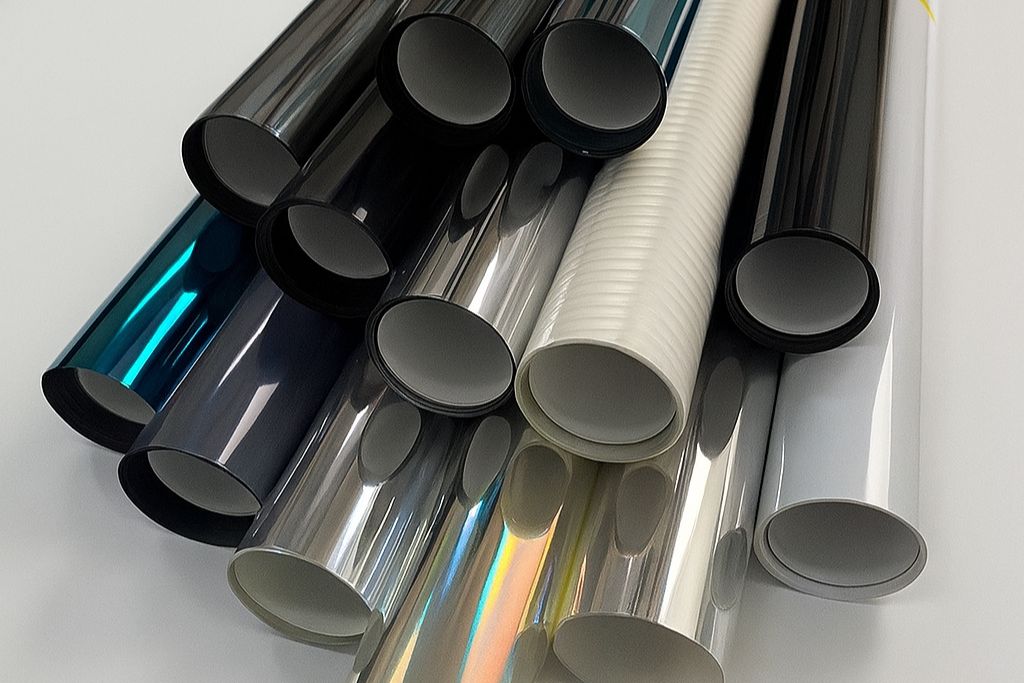
- High-light plants (succulents, fiddle-leaf figs, orchids): These sun lovers need direct or bright indirect light to thrive. Use high VLT films (≥70%) or place them near east- or south-facing windows that get the most sun. Avoid dark tints, or supplement with full-spectrum grow lights if natural light is insufficient.
- Medium- to low-light plants (such as ferns, peace lilies, and ZZ plants): These plants adapt well to filtered or diffused light. They’re perfect for rooms with privacy films or light-diffusing tints, where harsh sunlight is softened.
- Light-sensitive plants (calatheas, some philodendrons): These can be sensitive to changes in light quality. After tint installation, some may temporarily wilt or yellow, but most will recover with time and consistent care.
🌱 Adaptation Tip: Shift plants gradually between lighting conditions to avoid stress. If moving a plant to a tinted room, give it time to acclimate over several days.And in low-sunlight months or shaded areas, grow lights are a reliable way to supplement natural light and keep your indoor garden thriving year-round.
Why Window Film Is a Smart Choice for Houston Plant Lovers
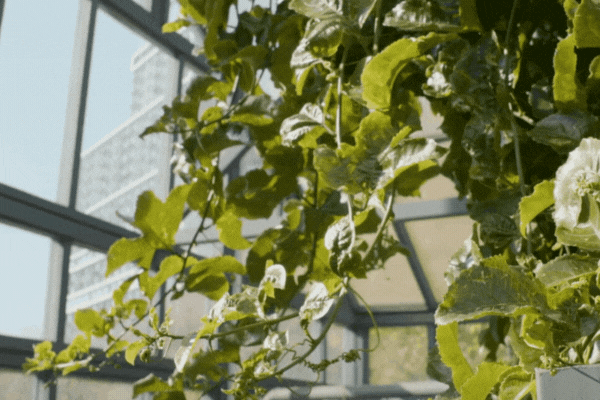
Houston’s climate is hot, humid, and packed with intense sunlight, ideal for tropical outdoor plants, but potentially harsh for indoor greenery. Without protection, your houseplants can suffer from overheating, leaf scorch, or rapid dehydration near sunny windows.
That’s where window film becomes a game-changer. It helps block up to 99% of UV rays, reduces solar heat gain, and softens harsh sunlight, creating a stable, gentle environment that supports healthy plant growth. Additionally, by reducing glare and interior fading, you also protect your furniture, flooring, and décor.
Whether you’re growing a lush windowsill herb garden or displaying statement plants in a sunny room, our residential window tinting solutions offer the perfect blend of energy savings, comfort, and plant-friendly lighting, customized for homes in Houston.
Internal Guide: Choosing the Right Film for Your Green Space
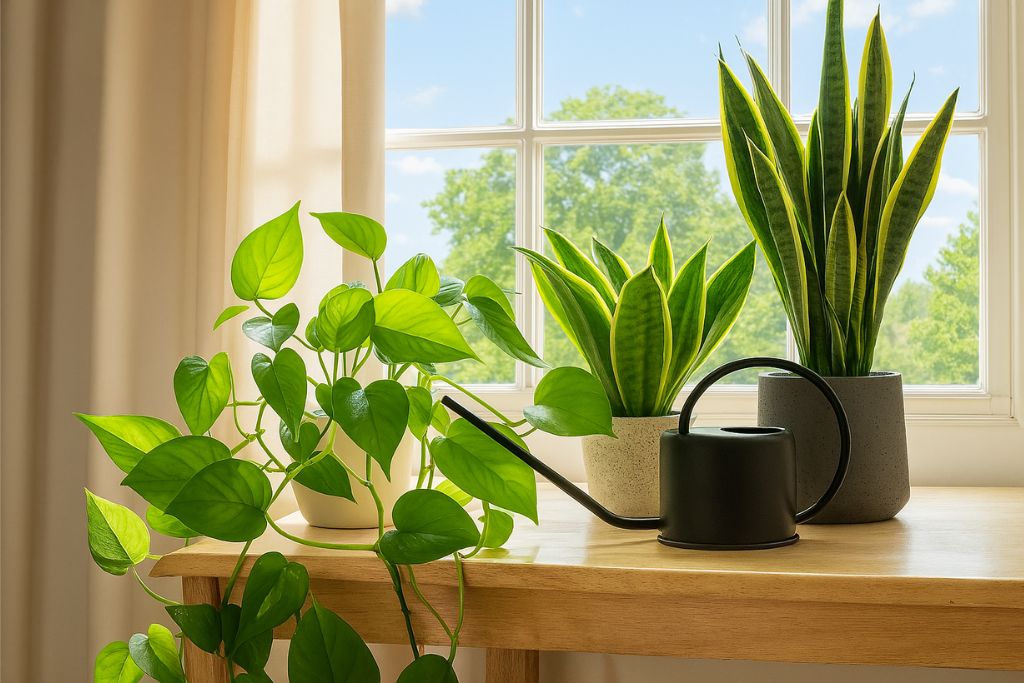
Still debating between window film and traditional curtains? While curtains can provide shade and a decorative touch, they often block out too much light, which can hinder plant growth and reduce natural brightness in your space.
Window film, on the other hand, offers a balanced solution, filtering harmful UV rays and heat while still allowing plant-essential light through. It’s also a permanent, low-maintenance upgrade that enhances both comfort and energy efficiency.
Need help weighing your options?
Explore our blog on which is better for energy efficiency: window films or traditional curtains for a detailed comparison.
Still unsure if tinting is right for your home or plants? Our post on who should consider residential window tinting helps you determine if it’s the best fit for your lifestyle, lighting needs, and indoor gardening goals.
Conclusion: Window Tinting and Plants, A Beautiful Balance
If you’re a Houston homeowner or business owner who loves indoor greenery, window tinting isn’t a threat, it’s an upgrade. The key is choosing the right type of film that complements both your energy-efficiency goals and your plants’ needs.
At Commercial Film Specialists, we tailor window film solutions to work for your home, your family, and yes, your ferns, succulents, and monsteras too.
Ready to boost plant health while keeping your home cooler and more comfortable?
👉 Explore our residential window tinting solutions and schedule a consultation today.
FAQs: What People Also Ask
❓ Does window tint affect houseplants?
Yes, but usually in positive ways. The right tint blocks harmful rays and controls heat while allowing essential light for photosynthesis.
❓ What are the disadvantages of tinted windows?
Dark or reflective films may reduce usable light for sun-loving plants. Choose high-transmittance or UV-only blocking film to avoid this issue.
❓ What is plant-friendly window film for indoor plants?
Film that allows red and blue light, filters UV, and stabilize temperature—like 3M™ Sun Control or Low-E films.
❓ Why might tinted windows reduce leaf scorch or fading?
By blocking intense UV rays and glare, tints shield delicate leaves from cellular damage.
❓ Can plants get enough light through tinted windows?
Yes—if you select the right film. Most indoor plants thrive under filtered, indirect light.
Commercial Film Specialists
5.047 Google reviews
Window tinting service in Houston, Texas
Hours: Closed ⋅ Opens 9 AM





